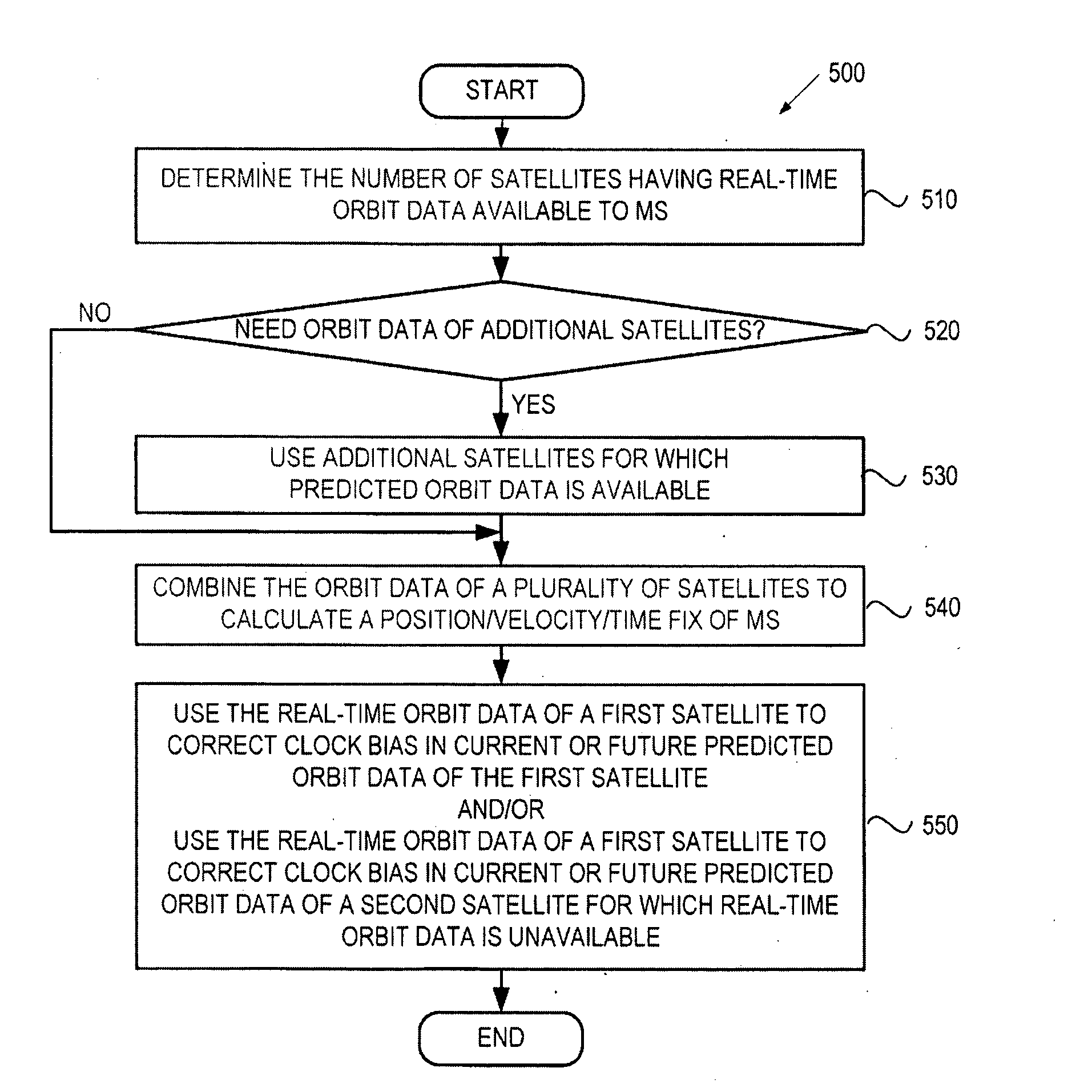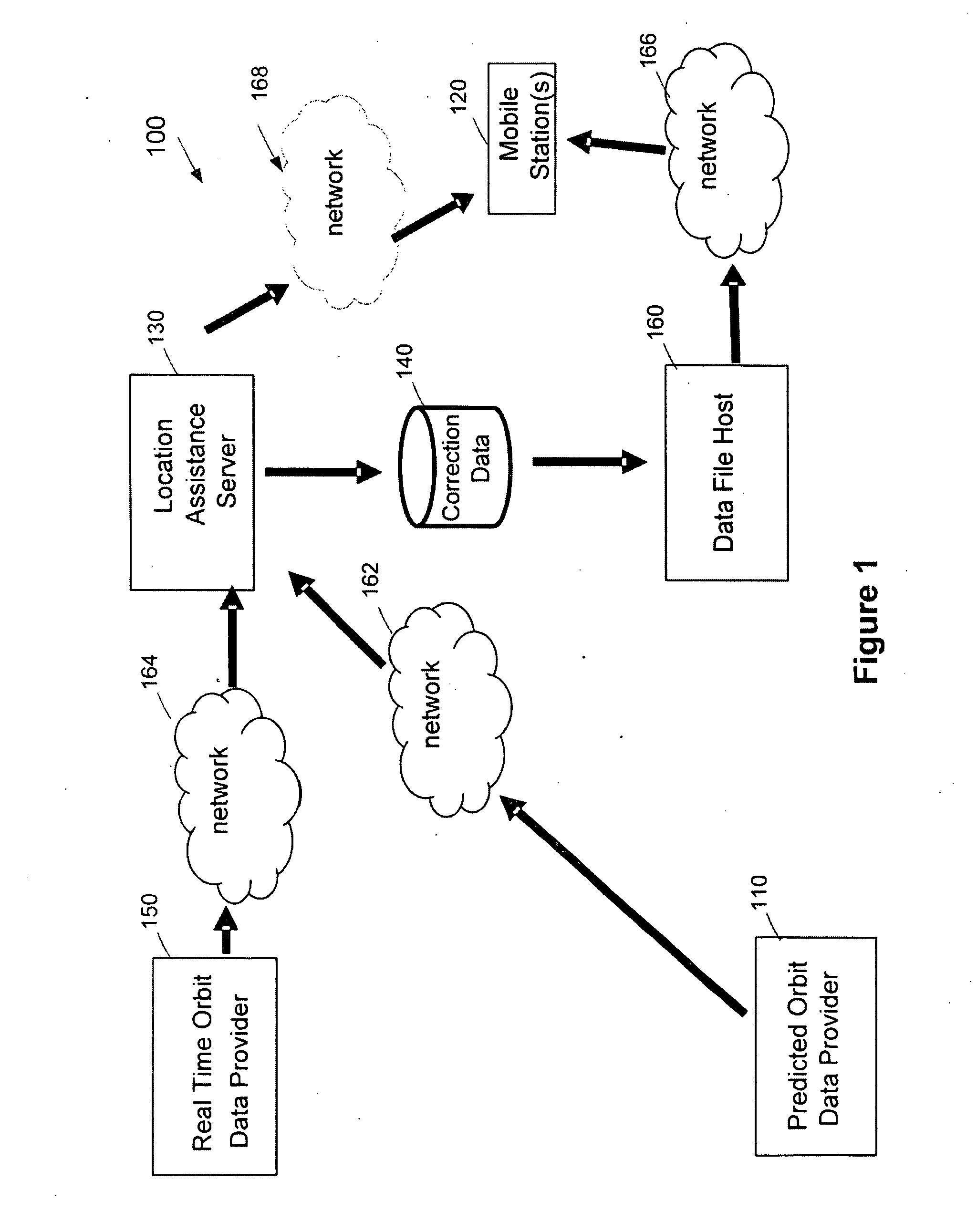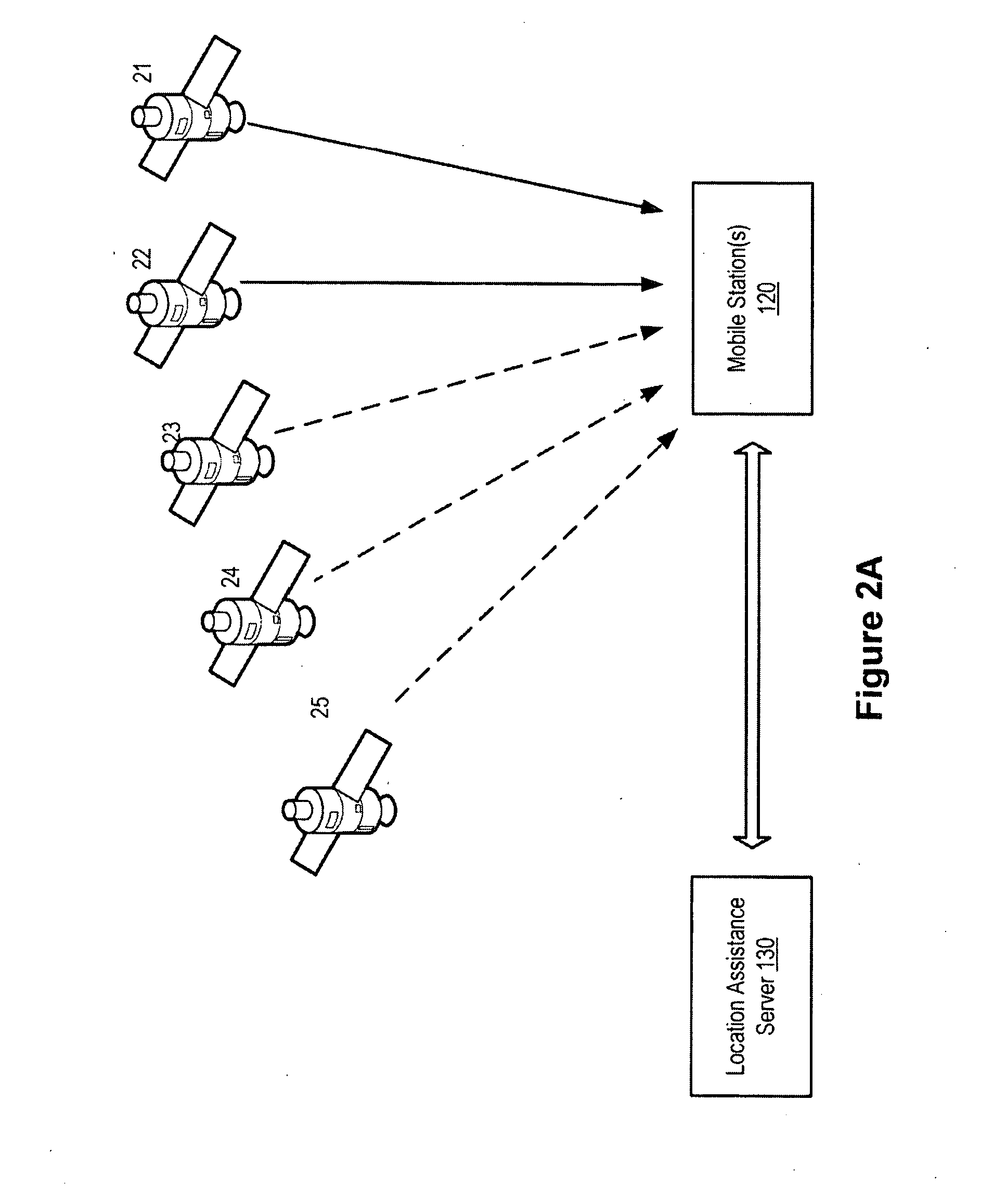Method and apparatus for position determination with hybrid sps orbit data
a position determination and hybrid technology, applied in the field of satellite positioning systems, can solve the problems of time-consuming and laborious, requiring moderately strong signal levels, and the relatively long time needed for standalone signal acquisition, so as to improve the accuracy of the clock bias of the predicted orbit data and improve the accuracy of the mobile fix
- Summary
- Abstract
- Description
- Claims
- Application Information
AI Technical Summary
Benefits of technology
Problems solved by technology
Method used
Image
Examples
Embodiment Construction
[0024]A method and system for assisting a mobile station to determine its position (or velocity) and time (referred to as “a fix”) is described. The method and system also improves the precision of satellite clock bias. Satellite clock bias, as described herein, refers to the difference of satellite clock's time estimate from a master clock, such as a Global Positioning System (GPS) master clock. From the positions and clock bias of multiple satellites, a mobile station can determine its own position and time. In one aspect of the invention, the position and clock bias of each satellite may be provided to the mobile station from a variety of sources with different degrees of precision. Generally, real-time orbit data (e.g., ephemeris) has the highest accuracy, but may not be available all the time. A “hybrid” technique is introduced herein to enable a mobile station to combine the real-time orbit data with other satellite orbit information, such as predicted orbit data, in the calcu...
PUM
 Login to View More
Login to View More Abstract
Description
Claims
Application Information
 Login to View More
Login to View More - R&D
- Intellectual Property
- Life Sciences
- Materials
- Tech Scout
- Unparalleled Data Quality
- Higher Quality Content
- 60% Fewer Hallucinations
Browse by: Latest US Patents, China's latest patents, Technical Efficacy Thesaurus, Application Domain, Technology Topic, Popular Technical Reports.
© 2025 PatSnap. All rights reserved.Legal|Privacy policy|Modern Slavery Act Transparency Statement|Sitemap|About US| Contact US: help@patsnap.com



